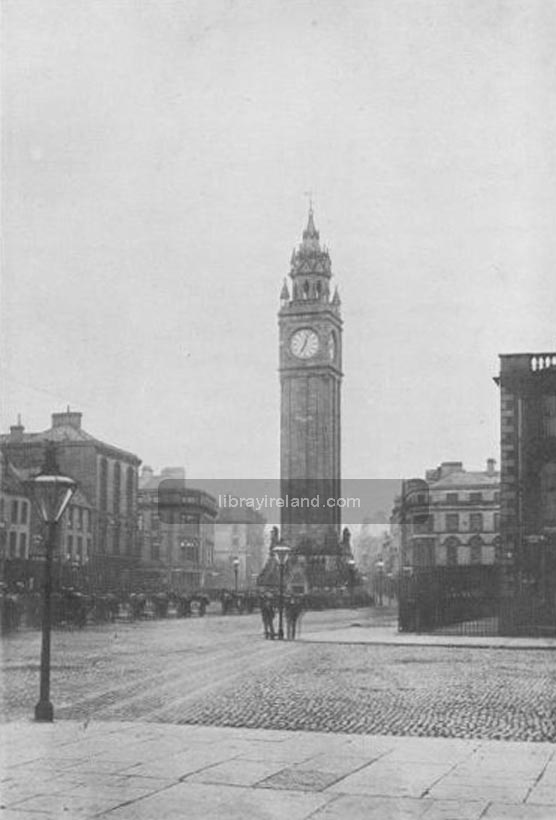Belfast Charitable Society - Story of Belfast
THIS is the oldest charitable institution in the city, and it has had a varied and most interesting career. It is perhaps better known at the present time as the "Old Poorhouse," and now after a record of over one hundred and fifty years' work, it is still one of the most useful and well-managed institutions we have.
The idea originated about the year 1752. There were at that time a great many very deserving poor people in the town, and it was considered that something ought to be done for their relief. A number of beggars crowded into the streets; they were a continual source of annoyance, and it was suggested that they should do some useful work in the Poorhouse. In the prospectus issued, it was at first proposed to unite three objects at once, but this was found to be unworkable. This was to rebuild the church, to build a Poorhouse, and to combine a hospital for the aged and infirm poor, and the money was to be raised by a public lottery, which was a common method of raising money at that time. Great difficulties arose, and caused delay, but at last, from varied sources, a sum of £7,500 was available, the church part of the scheme was dropped out, and the Poorhouse was planned. Lord Donegall, to whose generosity Belfast owes so much, gave a grant in perpetuity of a most suitable piece of ground in an open, airy, healthy place. The gift of eight acres of land was indeed a handsome present, and, after some delay, the foundation stone was laid, in the year 1771. The eight acres have now increased to nineteen by additions granted by later members of the Donegall family, for which the society pays a nominal rent of £12 a year.
The beggars at that time were allowed to wear a badge and they were called "bang beggars." They were licensed to beg for a limited time. They became so numerous that some means had to be taken to reduce their numbers, and a sum of five and sixpence was paid for every beggar caught and brought to the Poorhouse. This was found to be a sad mistake, for the "bang beggars " brought up their less fortunate unlicensed neighbours and claimed the reward, so other means had to be adopted.
The poor had to work, and one beneficent plan was tried, but after a time was discontinued. This was, that husband and wife were allowed to live together. Then poor children were admitted, and it was in the Poorhouse that Mr. Joy taught the children the cotton manufacturing industry.
The methods adopted for raising money were many and various, and one curious item is a fee of £1 1s. a year for the use of a shower bath, quite an exciting recreation in the days of long ago.
There was a ball once a month and concerts once a fortnight. The sum of £250 a year was raised for the Poorhouse by these entertainments.
In the year 1772, a special collection was taken by ten ladies in St. Anne's Church in aid of the institution for female infant orphans. Rev. W. B. Kirwan, D.D., preached, and the ten ladies collected £752. In later years, about 1812, the House of Industry refused to accept the money raised by an amateur theatrical performance on the ground that it was sinful to accept money acquired by such means. Times have indeed changed since then, and no hospitals in town now refuse to accept money from such a source.
The "Old Poorhouse" has been a distinct feature in the history of Belfast for a very long time, and it is an institution that has the good wishes of the entire community.

